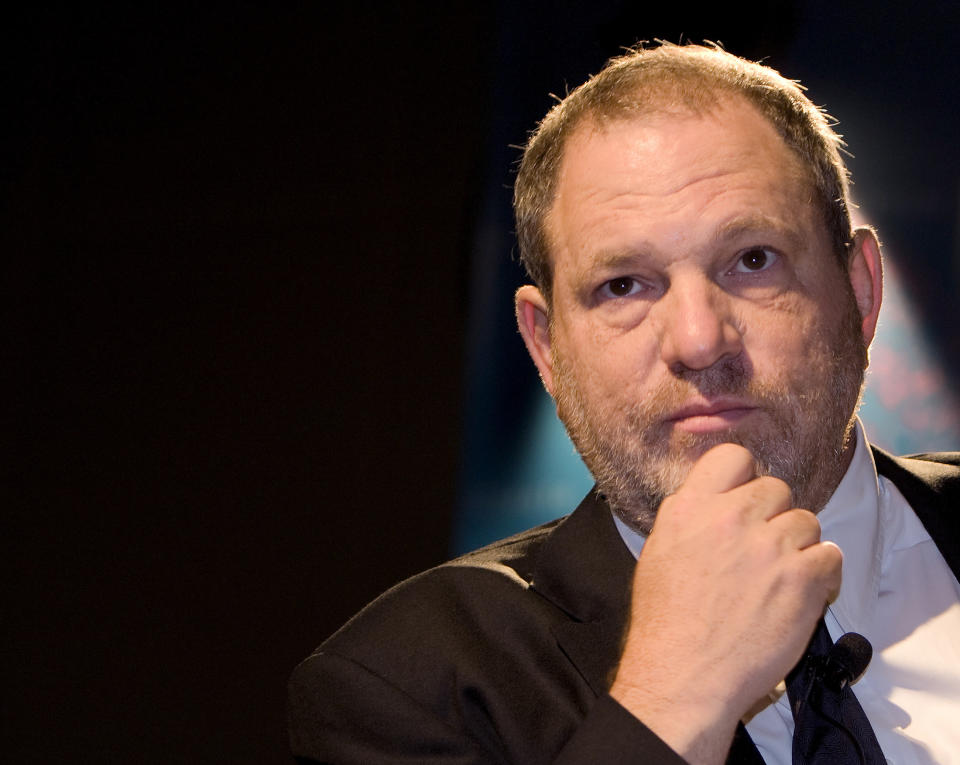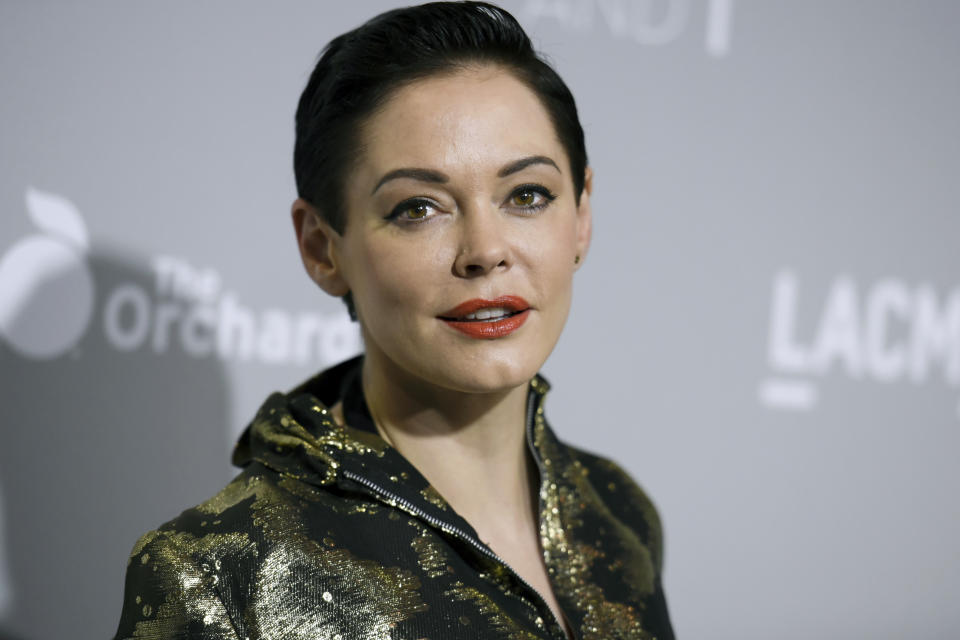Harvey Weinstein scandal could expose a 'murky, untested' area of the law

The actress Rose McGowan, the Italian model Ambra Battilana, two Miramax employees, and an employee of the Weinstein Company have at least two things in common.
First, these women all accused the now-disgraced Hollywood mogul Harvey Weinstein of sexual misconduct. They also all entered into into settlement agreements that effectively bought their silence about that alleged misconduct for years, according to The New York Times.
“What I think happens when you have these nondisclosure agreements is that everybody assumes it’s just them,” says L. Camille Hébert, a professor at The Ohio State University’s law school and an expert on sexual harassment and workplace discrimination. These types of agreements, she says, give people in positions of power the ability to hide patterns of harassment or abuse.
‘A murky and untested area of the law’
The New York Times’ revelations on Oct. 5 that Weinstein paid off his accusers have spurred more than 40 women to come forward to accuse him of harassment or assault — but the report has also started a bigger conversation about sexual harassment and sexual assault, especially in the workplace. Anybody on Twitter (TWTR) or Facebook (FB) in recent days has likely seen women, and some men, tell their own stories of harassment or assault using the hashtag #metoo.
Some participants in the #metoo campaign may very well be defying confidentiality clauses in agreements like the ones that Weinstein’s accusers have agreed to.
But in recent years, these clauses have faced increased scrutiny, with some judges even throwing them out because they’re against “public policy,” according to Hébert.
The #metoo campaign and Weinstein allegations may end up empowering even more women to violate these clauses — “almost sort of daring the former employer to go after them,” according to David C. Yamada, director of the New Workplace Institute at Suffolk University’s law school.

In theory, employers could sue these women for violating these agreements. But it’s unclear how this litigation would play out since most accusers end up complying with these deals for fear of getting sued. As Yamada noted to Yahoo Finance, “This is a murky and untested area of law.”
‘Cost of doing business’
While this might be a relatively untested area of the law, confidentiality clauses in settlements with employers are nothing new in the U.S.
“Over the last 20 years they have become increasingly popular — to the point where there’s almost a presumption that there will be some kind of nondisclosure clause in an employment-related settlement,” Yamada told Yahoo Finance.
Back in 2011, then-GOP presidential contender Herman Cain brought some attention to confidential settlements after admitting that he’d agreed to one to settle a sexual harassment claim against him. At the time, Caren Goldberg, a human resources management professor at American University, told CNN that such settlements are the “cost of doing business” for companies.
Rather than fighting a costly legal battle, she noted, companies could opt for “a low-cost settlement right there that makes the problem go away and swears everyone to secrecy.”
Sometimes these settlements aren’t always so low-cost and they aren’t always a secret, though. In August, 21st Century Fox revealed in a securities filing that it had paid out $50 million to settle sexual harassment claims made against the network in the prior year. Of course, the settlements involving Weinstein didn’t remain a secret, either.
‘They would look pretty tone-deaf to sue right now’
Even though those Weinstein settlements didn’t stay under wraps, the Weinstein Company is highly unlikely to sue anybody who violates one of those deals, according to Yamada and Hébert.
“They [The Weinstein company] would look pretty tone-deaf to sue right now,” Hébert noted.
It’s less clear whether other companies would go to the trouble of suing sexual-harassment or assault accusers who violated confidentiality agreements under less high-profile circumstances. If a company does go after somebody who violated that agreement, a judge might throw out the confidentiality clause as being “against public policy” — particularly if a company is asking an accuser not to reveal information that might be against the law, according to Hébert. In that case, the accuser probably wouldn’t have to give back their settlement money, she said.
“If the confidentiality agreement was part of a settlement agreement, and only the non-disclosure/confidentiality provision was found to be against public policy (as opposed to the entire settlement agreement),” she noted, “then a judge would likely strike only that portion of the agreement.”
Is sexual harassment a “public hazard”?
In other cases, Hébert said, judges have upheld confidentiality agreements in workplace harassment settlements — forcing victims to return all of their settlement money. Still, Yamada said, there is some hope that the #metoo campaign will change the way employers handle sexual harassment claims and how the legal system deals with them.
Indeed, several states including Florida already ban confidentiality clauses in settlements that involve a “public hazard.” In the legal publication Law360 last year, a lawyer named Chloe Roberts suggested these laws might apply to sexual-harassment settlements.
“The legislative intent behind public hazard laws specifically aims to prohibit parties to a settlement agreement from being able to hide dangerous people and conditions from the public consciousness,” she wrote. “Secret settlements that protect sexual harassment in the workplace, and cover serial sexual harasser’s privacy, are toxic for lawyers, clients, the legal system and the public.”
Still, Merrick Rossein, a professor at CUNY School of Law, believes most companies won’t hesitate to sue those who violate confidentiality clauses in agreements, despite the spotlight the #metoo campaign is shining on rampant harassment in the workplace.
“I would suggest the companies are going to be just as aggressive at enforcing those confidentiality provisions,” Rossein said. “If you keep things secret, then it benefits the corporation.”
Erin Fuchs is deputy managing editor at Yahoo Finance.
Read more:
Why somebody like the KB Home CEO would get to keep their job after a profane outburst
How America’s tech giants reached crisis mode
Moody’s: Amazon may actually be the weakest retailer
Here’s what the fired ‘anti-diversity’ engineer would have to prove in his case against Google
A fight over gay employees will almost certainly hit the Supreme Court
A legal fight over NYC dog sitters highlights a bigger problem in America
